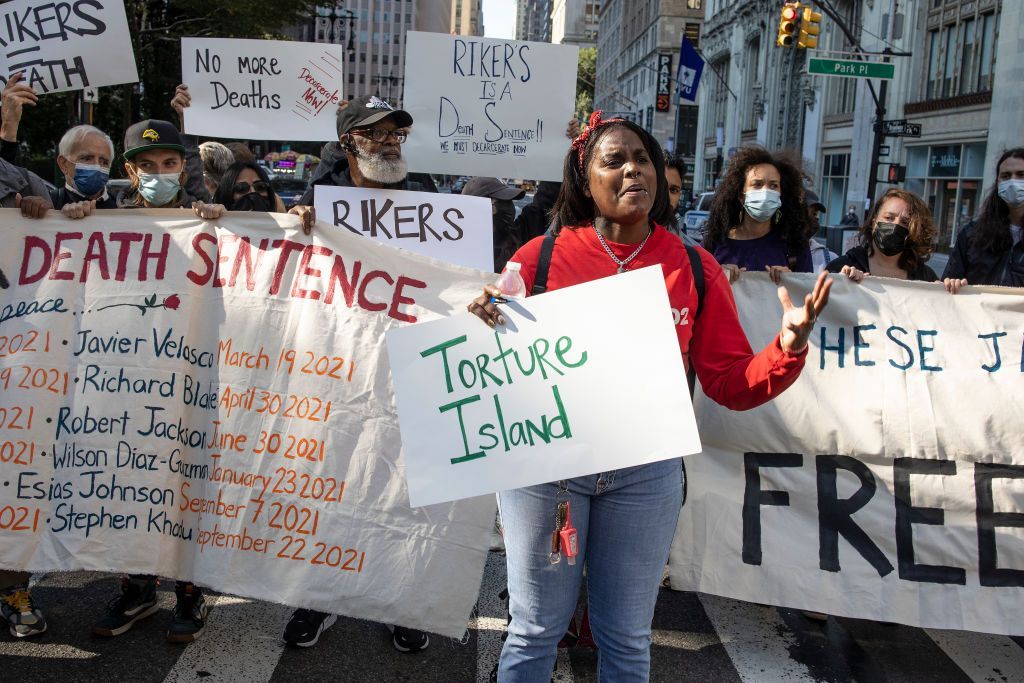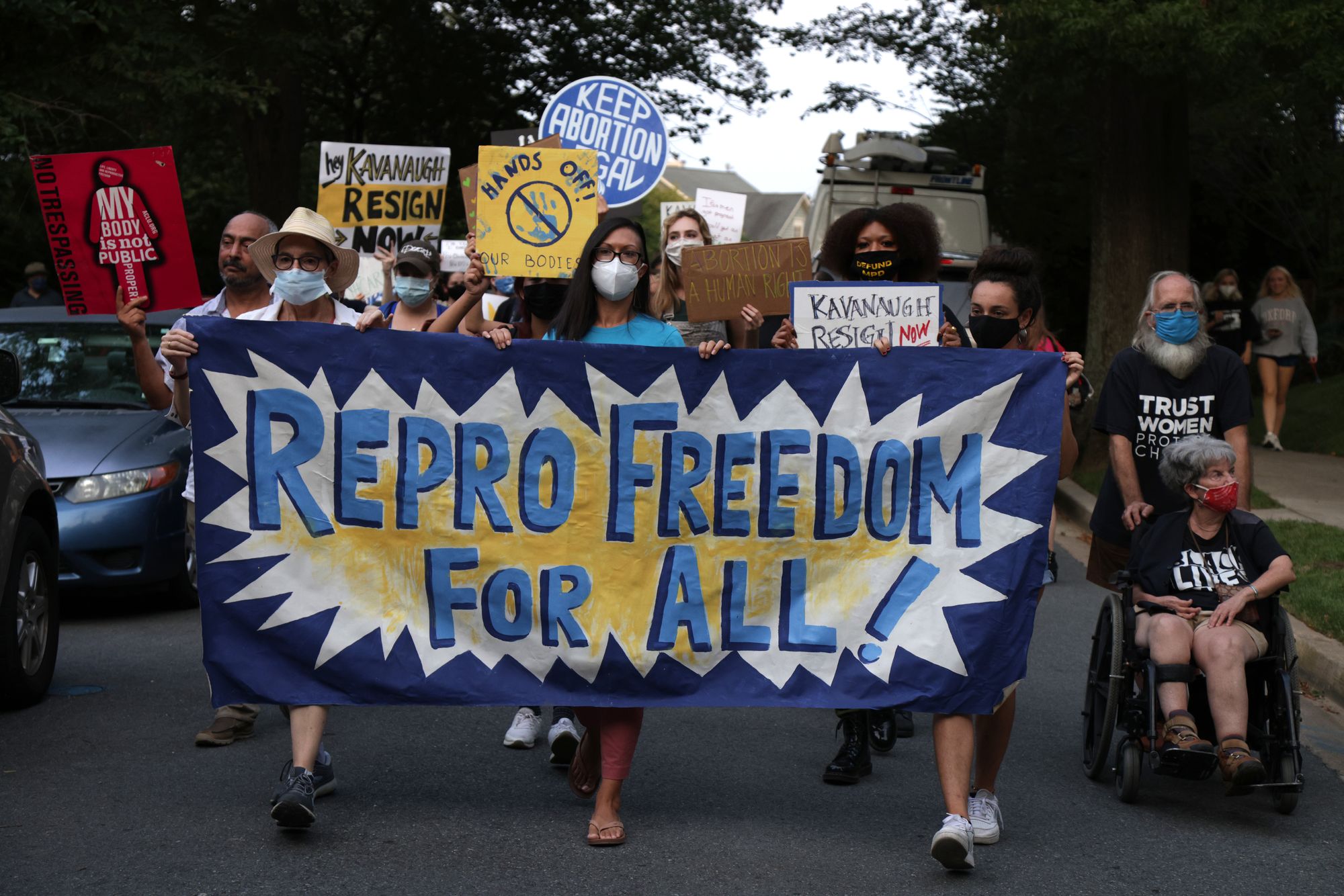As wide a circle of people as the law can implicate

I write about the epidemic of wage theft in the country down below but up first today Shane Ferro joins us to write on the passing of Kathy Boudin and the scourge of felony murder convictions.
Please chip in to support our work here if you are able to. Here's a nice little coupon.
Previously Ferro wrote for Hell World about the conditions on Rikers Island and on the early days of Covid inside of New York City courthouses.

By and large judges do not want to know what is going on in the jails that they send people to. It complicates their job. In a bail argument a few weeks ago I tried to read from a newspaper story about recent horrifying jail conditions and the judge told me she didn’t see how that was relevant to my argument. My argument asking her not to put my client in that jail.

I kept moving back and forth between the windowless office and the suffocating jail cells. The fluorescent lights flickered. As a first-year attorney, night court is one of the hardest parts of the job. Even when people aren’t likely to stay in jail long, they’ve still been in a cell for something approaching 24 hours. The arrest itself was probably extremely traumatic, regardless of what they are accused of, and it often will trigger some other consequence...
For more from me on felony murder laws read here:

In short felony murder laws state that if someone is killed while a person is in the act of committing a felony then they are responsible for that death as if they had murdered the person themselves. Most states in the U.S. have some form of this. Accomplices can also be charged with the murder as well such as someone driving a getaway car in a robbery although it is a net cast wide enough that sometimes a person simply sitting say in the back of a car while someone they know is engaged in a crime might be ensnared as well. (The Appeal has a good explainer here.)
“Since 2010, at least 22 people nationwide have been charged with felony murder for deaths directly caused by police,” a Buzzfeed story from earlier this year found.
In Phoenix in 2019 for example a man named Jacob Harris was shot to death by police after jumping out of a car they had pulled over. Police suspected the four people in the car to have been involved in a robbery so when Harris ran and they mowed him down it wasn’t their fault it was the three others in the car that made them do it in the eyes of the law.
Or here:

Not the killing but the intention to kill
by Shane Ferro
Last week, the leftist, advocate against incarceration, and former incarcerated person Kathy Boudin died. A number of mainstream outlets ran obituaries, many of which were more positive than I expected, especially considering her early life as a member of the Weather Underground. But they all left something to be desired when it came to actually discussing the terms and realities of her conviction and subsequent incarceration.
Boudin served 22 years in prison after a guilty plea that stemmed from an armed robbery gone wrong. Her time was done largely at Bedford Hills Correctional Facility, a New York State prison for women in Westchester County. The articles about Kathy largely talk about the somewhat warm, fuzzy things that happened to her or because of her while she was there. This is in part the nature of obituary, for a person to create any sort of positive experience while in a prison is an accomplishment to be noted.
It also feels somewhat like a redemption arc is necessary in order to justify mainstream outlets writing about the life of a “criminal.”
Bedford Hills is a horrific place. It was most recently in the news as the prison that the city moved incarcerated women to in an attempt to get them off Rikers Island. It was somehow even worse, and not just because the women were taken further away from their families and support systems. The women transferred there have reported they weren’t given regular access to phones, and they had a strict time limit for eating. If they didn’t finish in time they had to throw their food away. Several said that they were attacked and threatened by corrections officers. Early in the pandemic, the Appeal reported that staff would not let a woman who had contracted Covid at the facility and was dying have a video call with her doctors, family, and friends.
The women who came from Rikers were transferred back in early 2022 after just four months. Imagine a place so bad that it seemed preferable to go back to Rikers Island.
Kathy Boudin suffered through more than two decades in this place. None of the writing about her life that I’ve seen goes into detail about why that was the case. Here’s how the Center for Justice at Columbia, of which Kathy was a co-founder and co-director, describes the event:
In 1981, trying to raise money to support Black revolutionary organizations, Kathy and her partner David Gilbert participated in the robbery of a Brinks truck in Nyack, NY. Though Kathy and David were not armed and did not personally hurt anyone, three men were killed. Kathy and David were arrested and sentenced to decades in prison.
There are three things here: 1) It was an armed robbery Kathy willingly participated in, but 2) she did not personally commit any violent acts, and 3) she was convicted and sentenced to decades in prison. Most of what I’ve read get those three facts out, with more or less detail depending on the ideological bent of the author, then move on.
But to me, the leap from 2) to 3) matters, to both the life of Kathy Boudin (and those who loved her) and to the world at large. Three people died. She was involved in the crime more generally that is associated with those deaths, but she did not shoot anyone. She did not kill anyone. Two of the three people that died were police officers. Reports indicate that at the time the officers were shot Kathy was out of the van with her hands up attempting to surrender.
Yet she did two decades in prison, in part because on top of the robbery she was convicted of second-degree murder. New York has what is called a “felony murder” rule, which means you can be convicted of murder if you are an accomplice in a felony in which someone is killed, even if you did not kill the person or mean for the person to get killed. (Notably, this was a “lenient” sentence after she took a plea—her partner David, who went to trial, received 75 to life.)
A recent report by the Sentencing Project titled “Felony Murder: An On-Ramp for Extreme Sentencing,” notes that felony murder “exaggerate[s] the risk of homicide related to felonies in general, and thus the extent to which a person participating in those felonies should have anticipated that death would occur. For example, a study of Chicago in the early 1980s found that approximately 0.6% of reported robberies resulted in homicide.”
The entire idea of “murder” as I learned it in law school, going back to whenever Samuel Alito thinks is appropriate for historical accuracy, is defined not by the killing but the intention to kill. When you kill someone but only intended to hurt them, for example, that’s manslaughter. Except when it comes to felony murder. Felony murder doesn’t punish for an act, or an intent to commit an act, but only for being close to someone else’s act. Conspiracies and accomplice-type crimes can also punish for being close to some criminal act, even if you don’t commit it. But the difference is that with a conspiracy or an accomplice there theoretically exists an intent for the final crime to happen. If you tell someone else to go steal something, or kill someone, it follows that you might be implicated and then punished for that act, which you took steps to make sure happened, even if not by your own hand.
But felony murder isn’t that. There need not be any intent that anyone be killed, or even any killing by the person “guilty” of felony murder. There is just a death, a tragedy, followed by yet more tragedy for as wide a circle of people as the law can implicate. Felony murder imposes disproportionate sentences on those who neither intended to nor actually participated in killing anyone. And to talk of a disproportionate sentence in America is to talk of decades, a half century, life.
The felony murder rule, not leftist radicalism, is why Kathy Boudin spent 22 years in prison. It’s the reason that she missed the entirety of her son’s childhood, and the prime years of her adult life.
After Boudin was released in the early aughts, she got a Ph.D. at Columbia. She founded both the Center for Justice and the Release Aging People in Prison organization. She apparently wouldn’t even jaywalk in New York City for fear of violating her parole. What could have been had she had another decade or two to be the person she became? What did society gain by keeping such a person locked in a cage for more than two decades? And what did we lose?
Shane Ferro is a public defender in New York City and the author of the newsletter Cruel and Unusual, a journey through America’s obsession with incarceration and punishment.

There has been an epidemic of crime sweeping the nation for a long time now. No it’s not when some guy walks out of a CVS with an armful of diapers making every crying loser in San Francisco think he lives in Mega-City One now. It’s theft moving in the other direction. Money being stolen from the poor by the rich.
Wage theft is the most pervasive form of theft in the country to the tune of $15 billion a year. It accounts for more than all the other kinds of theft that people and especially the media and the cops tend to get really excited about like burglaries and car theft combined. The difference is if you steal $500 from a store in a robbery they’re gonna send the entire SWAT team after you to put you in a cage. If the owner of a McDonald’s franchise steals $500 a week from his workers week after week as a matter of standard practice well then that’s just savvy business.
Unsurprisingly a big chunk of this type of wage theft is perpetrated against some of our worse off people. People who are living tiny check to tiny check and for whom the prospect of quitting and missing even a day of work could send them spiraling. Or undocumented people who fear retaliation.
The prevalence of wage theft in California specifically was highlighted in a recent survey conducted by the Fight for $15 campaign. The results weren’t exactly surprising but are nonetheless grim and worth taking note of. After talking to 410 fast food workers in 86 cities throughout the state they found 85% of them had experienced one kind of wage theft. 57% of workers had experienced multiple kinds of wage theft and “nearly one-third of workers have been retaliated against for asking to be paid properly, taking a sick day, or asking to be paid for a sick day.”
The forms this type of theft take can vary. One common one is simply being forced to work without pay. Having to start a shift before you officially clock in for example or being made to stay late after you’ve clocked out. There’s also a whole host of minimum wage violations where a worker might be made to clock in under a different name or have their hours spread out over various weeks so overtime doesn’t officially kick in. There’s also withholding of allowed breaks and meal times or being forced to work through them and then there’s just good old fashioned fuck you I’m not sending you your check. Oftentimes that happens when it’s the last check someone is owed before leaving.
So why not make a big stink about it? 30% of the workers they talked to said they had experienced retaliation when they did just that.
“Retaliation can include the cutting of hours, days or weeks from an employee’s schedule or termination,” the report explains. “Retaliation has the troubling and often toxic effect of quieting both the worker who experiences it and the coworkers who witness it. It demonstrates to workers throughout a work place that if they speak up, the same thing could happen to them.”
Here's one demonstrative and not at all uncommon story of a worker being stolen from the report:
The experiences of Maria Bernal, a Jack in the Box worker in Folsom, are emblematic of those faced by many workers in the fast-food industry. She has experienced several forms of wage theft resulting in negative impacts on her family life and economic situation, and when she and her coworkers spoke up and tried to exercise their rights, they faced threats and retaliation from their employer.
Bernal, a single mother of three who has worked at Jack in the Box for a decade, calculates that she was cheated out of more than $150,000 over a nine-year period. After her husband was deported, it was up to Maria to support her kids on her Jack in the Box income. Maria reports that her employer regularly required her to work 14-hour shifts with no breaks, paying her for only eight hours thereby requiring her to work more than one third of her shift unpaid and off the clock to avoid paying for overtime hours worked. Quitting did not feel like an option. She could not afford to lose even one day’s pay, nor did she think she could find better treatment elsewhere in the industry.
“Everyone has complained that they don’t get paid for all their hours,” she says. “I asked [the manager] why am I missing hours? Why aren’t they paying overtime? But she did not answer. They would promise me that if I worked Christmas day, they would pay me double time, but they never did. This is what is happening to us in fast food – we don’t get paid for our work.”
Wage theft can have devastating effects on workers and their families. Maria Bernal has been evicted, has had her phone cut off, has turned to public assistance to eat, and has been hospitalized for exhaustion due to overwork. She says: “Jack in the Box did not just cheat me out of the money I earned, they stole time with my kids, holidays, birthdays, weekends, time when they were sick, and I couldn’t be there. It was especially hard when my kids were sick and they forced me to work. I do everything so my kids don’t have to struggle in life as I have. I don’t want them to have to work so hard just to survive.”
The solution they suggest can be found in legislation that is currently pending in the state. AB 257 or FAST Recovery Act has passed the state assembly and now awaits a vote in the senate. As KQED explains the legislation "would allow workers to have a greater say in their labor conditions, by creating a council that includes them, as well as employers, franchisers and state labor enforcement agencies. The council would have the authority to set minimum standards for the industry and tackle problems like wage theft." It would also "make fast-food corporations liable for fines for labor law or other violations by franchisees, and allow those small-business owners to sue corporations for contracts that prevent compliance with the laws."
HAPPENING NOW: We’re marching with our children to @CAGovernor’s office to ask him to step up, join fast food worker families, support #AB257, and ensure we have a say in our industry.
— Fight For 15 Nor Cal (@NorCalFF15) May 2, 2022
Long before the pandemic our jobs haven't been family sustaining. Together, we can change that pic.twitter.com/ryh2j1bR50
If you live in California call your state legislator and tell them to get off their asses. Just be careful about where you march and protest though. We wouldn't want to make anyone in power uneasy.

